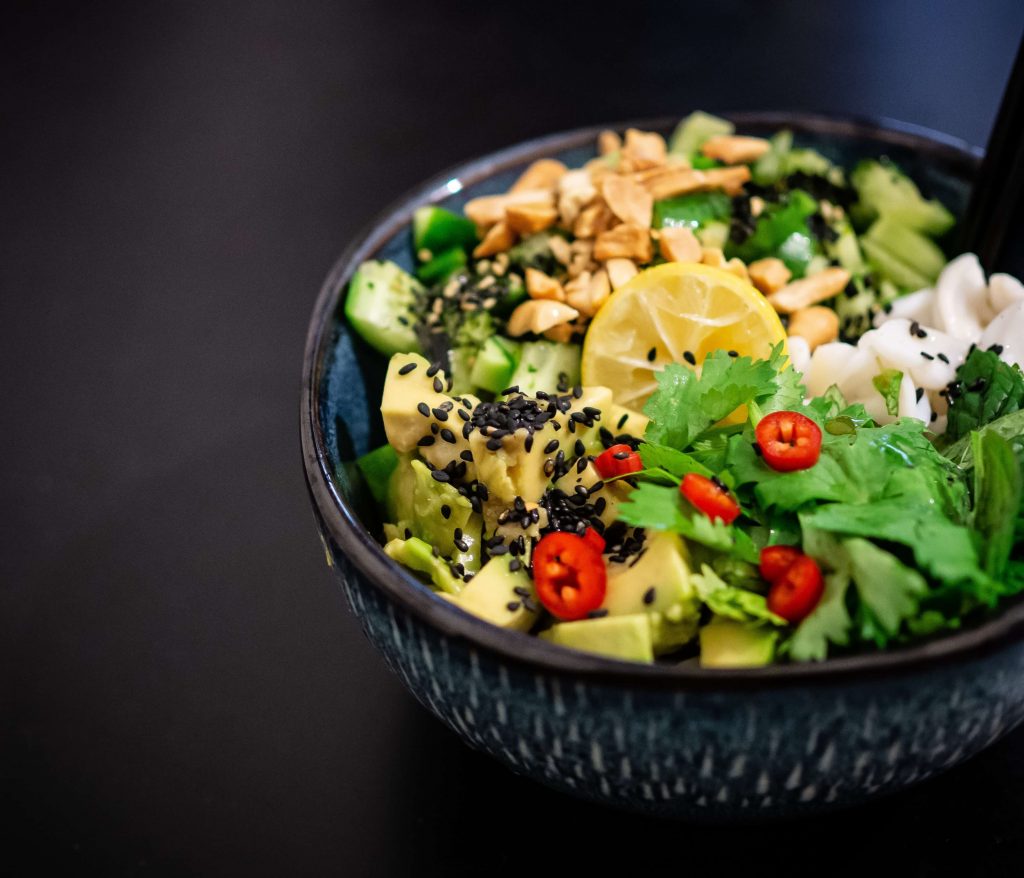If you’ve ever been to a Chipotle Mexican Grill, you know they have some of the best Mexican food around. But have you ever wondered what kind of oil they use to cook all of their delicious meals?
Well, turns out they actually use two different types of cooking oils for their meals – rice bran oil, soy oil and canola oil. Let’s take a closer look at what these two oils can do and what makes them so special for Chipotle.
- Soybean oil
- Canola oil
- Why does Chipotle use a mix of both soybean and canola oil?
- The History of Chipotle Mexican Grill
- How Healthy is Chipotle’s Cooking Oil?
- What’s the secret behind the incredible flavor in Chipotle’s dishes?
- Why does Chipotle use sunflower oil? Is it healthy?
- Are there any allergens or special dietary considerations in Chipotle’s sunflower oil?
- Does sunflower oil affect the taste of the food?
- How does Chipotle use sunflower oil in its dishes?
- Can I use Chipotle’s sunflower oil at home for my recipes?
- Is there anything else I should know about Chipotle’s sunflower oil?
Soybean oil
Let’s start with soybean oil. This oil is extracted from the soybean, hence the name. It has a fairly neutral flavor which makes it great for cooking multiple dishes. Not to mention, it has very high smoke points which makes it ideal for cooking ingredients at high temperatures. Chipotle uses this oil on their grills to make their delicious tacos and burritos.
Canola oil
Then there’s canola oil. This oil is made from the seed of the canola plant. It’s also a very neutral flavor but with a higher smoke point than soybean oil. Chipotle uses canola oil for more precise cooking like stir fry.
| Type of Oil | Usage at Chipotle |
|---|---|
| Sunflower Oil | Sautéing vegetables and grilling chicken to perfection |
| Rice Bran Oil | Used in some locations for frying chips |
| Canola Oil | Coating pans for cooking rice and other grains |
| Olive Oil | Part of select dressings and vinaigrettes |
| Vegetable Oil | Previously used for frying, now mostly replaced |
Sunflower Oil: This delightful oil is Chipotle’s star player. It brings out the best flavors in their dishes, from sautéed vegetables to perfectly grilled chicken. Its versatility and health benefits make it a top choice.
Rice Bran Oil: Found in select locations, this oil takes center stage in frying those crispy, addictive chips that we can’t get enough of.
Canola Oil: Perfect for coating pans, this oil ensures that rice and other grains are cooked to fluffy perfection, complementing the deliciousness of your bowl.
Olive Oil: Appearing in select dressings and vinaigrettes, this Mediterranean gem adds a touch of sophistication to certain dishes, providing a burst of savory notes.
Vegetable Oil: While once used for frying, Chipotle has mostly replaced it with healthier options like sunflower oil. However, it might still be found in trace amounts in some recipes.
The combination of soybean and canola oil for Chipotle’s menu is perfect. Not only does it make for some very tasty dishes, but it’s also better for our health. Regarding that, if you’re curious about how long guacamole can stay out, I recently composed a nice article about it. But let’s return to our subject. Both of these plant-based oils are low in saturated fats and contain omega-6 fatty acids which are known to reduce cholesterol levels. So not only does your food taste great, it’s also supporting your health.
Why does Chipotle use a mix of both soybean and canola oil?
So why does Chipotle use a mix of both soybean and canola oil? It all comes down to unique flavor. Chipotle needs an oil that can handle all types of cooking and ingredients, and that’s why they use both. It allows them to have that extra layer of flavor to their dishes that just can’t be replaced with one type of oil.
Speaking of flavor, let’s not forget about the smokiness that comes with cooking oil. Chipotle uses both soybean and canola oil to ensure they capture that wonderful smoky flavor. For instance, when cooking some of their most popular dishes like their tacos, Chipotle uses soybean oil on their grills to get that smoky, char-grilled flavor. As for their stir fry dishes, they use canola oil to brown the ingredients and bring out the flavors.
Moreover, Chipotle’s cooking oil mix also ensures their dishes are safer to eat. Aside from the health benefits, both soybean and canola oil are free from artificial trans fat. This means that Chipotle’s dishes can stay free from any possible toxins and other hazardous ingredients.
If you ever find yourself at a Chipotle restaurant and you’re wondering what kind of oil they use, now you know. The combination of soybean and canola oil makes Chipotle’s menu healthier and tastier than ever before.
To get a better understanding of why Chipotle uses this mix of oils, I asked a few local Chipotle fans what their thoughts were. Robert, a fan of the restaurant for over 10 years, explained that he enjoys Chipotle’s oil mix because it results in some very flavorful dishes. “Whenever I eat something from Chipotle, I can definitely taste the flavor. You don’t get that with other restaurants,” he said.
Regarding canned spinach, I recently wrote a piece on that. We’ll keep moving with our current project.
Of course, my experience wouldn’t be complete without chatting with some Chipotle employees. A couple weeks ago, I had the opportunity to speak with Troy, a long-time employee at Chipotle. He highlighted the buying process behind their oil. “We buy only the best oil we can find so we can give our customers the best products. We want to make sure that everyone who comes in to eat our food is satisfied with the quality.“
So when you hear about Chipotle’s oil mix, take comfort in knowing that it’s one of the best combinations you can get. Not only is it better for your health, but it’s also tastier and safer to eat.
If you’re ever in the mood for some amazing Mexican food, take a trip to your nearest Chipotle Mexican Grill and enjoy knowing that you’re having a much healthier and tastier meal.
The History of Chipotle Mexican Grill
Chipotle Mexican Grill is a fast-casual restaurant chain that has rapidly gained in popularity in the past decades, especially amongst millennials. Established in 1993 by Steve Ells, Chipotle Mexican Grill has grown from a small single restaurant in Denver, Colorado, to an international chain of over 2,500 restaurants.
When Ells opened his first location, his primary goal was to reinvent fast food by bringing fresh Mexican cuisine to the local Denver community. He was passionate about bringing dishes that paved the way for the “Chipotle experience” – in other words, creating a unique dining experience that focused on the quality of ingredients and the freshness of the food. With that in mind, if you’re pondering if turkey bacon is still good, I wrote a piece of it not long ago. Nonetheless, let’s return to our topic.
The idea of fresh, quality ingredients resonated with customers from day one – and the concept began to take off, expanding to four locations by 1998. It wasn’t long before Ells and the Chipotle team began to sense the growth potential of the business. As Ells proclaimed in his 1997 annual report for Chipotle, “We will be to Mexican food what McDonald’s and Burger King have been to fast food hamburgers.”
It wasn’t only Ells and the Chipotle team who saw the potential of the concept. In late 1998, McDonald’s noticed the success of Chipotle Mexican Grill and acquired an 86% controlling stake of the company. Chipotle went from four small locations in Denver to 500 locations nationwide over the next six years as part of the McDonald’s “fast casual” strategy. This financial backing allowed Chipotle to expand rapidly – in both locations and menu offerings.
By 2006, Chipotle was making culinary strides in the industry, as they began to focus more on sustainability and fresh ingredients – emphasizing the use of natural, organic items in their recipes. This commitment to quality ingredients not only led to tastier dishes, but it also led to the chain being one of the first national restaurants to be a part of the non-GMO project.

In addition to providing customers with healthier options, Chipotle has also become well-known for their customer service. During the early years, Ells and his team consciously sought to focus on a relationship-based environment. As Ells put it, “You have to be more than a fast-food restaurant. You have to build relationships with people.” This commitment to customer service is reflected in Chipotle’s “Food with Integritry” ethos which emphasizes both tasty recipes and responsible farming.
The combination of puting customers first, a commitment to sustainability and fresh ingredients, and their commitment to great recipes has led to Chipotle becoming one of the most popular fast casual eateries in the United States. Chipotle fans (often affectionately called “Chipotleholics”) are known for their loyalty and for their willingness to pay a little extra for the ‘Chipotle experience’.
In the past few years, Chipotle has continued to innovate, introducing vegan and vegetarian menu items, as well as gluten-free options. There is also a Chipotle rewards program, & digital “chiptopia” loyalty program. Chipotle’s footprint also extends into college campuses across the country. On that note, if you’re interested pairings for scalloped potatoes, I wrote a nice article about that recently. Now, let’s get back to our topic.
It’s clear that Chipotle’s mission do a new take on Mexican food has been a successful one. As Ells put it: “Chipotle is a reflection of my belief that there is a better way to do fast food. A better way that doesn’t compromise flavor, its ingredients or the environment.”
My own experience with Chipotle has been fantastic. As a vegetarian, I’ve found that Chipotle provides a variety of options that I can easily customize to my dietary needs. From their veggie burrito to their guacamole, their vegetarian options are great both tasting and nutritious. I also appreciate the level of transparency with their ingredients and their commitment to using responsibly raised meat.
Chipotle is a perfect example of a fast-casual eatery done right. Their commitment to quality ingredients, customer service, and sustainability are second to none – making them one of the foremost leaders in the food industry. With their commitment to great food with integrity, I’m sure that Chipotle Mexican Grill will continue to provide us with delicious recipes for years to come.
How Healthy is Chipotle’s Cooking Oil?
There’s something about a burrito bowl from Chipotle that seems to hit the spot time and again, making it a go-to for many people when it comes to Mexican-inspired food. But before you tuck into your favorite order, you’ll want to take a closer look at the cooking oil they’re using, as it can make a big difference to your health.
As a food blogger and fan of Mexican food, I’m often asked about the safety and healthfulness of Chipotle’s cooking oil. People often hear that it is healthy because it is made from plants, but a deeper investigation is necessary to understand the truth about Chipotle’s oil. In this part, I’ll explore the specifics of Chipotle’s cooking oil, the health implications of ingredients, and potential health benefits that may help you make an informed decision about what goes into your food.
First, let’s dive into the specifics of Chipotle’s cooking oil. The oil is a blend of canola, soybean, and sunflower oils, all of which are sourced from expeller-pressed plants. All three of these oils are high in healthy monounsaturated and polyunsaturated fatty acids. Alright, so if you were wondering how many calories are in a baked potato slathered in butter, I have you covered since I wrote an article on that. Nevertheless, let’s get back to our things.
The oils are also free from genetically modified organisms (GMOs), and are also minimally processed, further reducing potentially unhealthy components such as free radicals that may be found in other cooking oils.
By many health implications, the combination of these three particular oils – canola, soybean, and sunflower – is actually quite beneficial. Canola oil has been found to lower LDL cholesterol, as well as help reduce inflammation, a key to reducing disease risk. Soybean oil is high in omega-3 fatty acids, making it an ideal choice for vegans or vegetarians. Sunflower oil, on the other hand, is beneficial for immunity and cognitive function, as well as cardiovascular health.
Not only did a closer look at the oil’s ingredients reveal some health benefits, I was also pleasantly surprised to discover that Chipotle pays close attention to the oil-frying process to further reduce potential health risks.
The oil is changed out every day at each location to ensure its freshness and prevent the buildup of unhealthy components like trans fats, and they also deep fry their foods at low temperatures to reduce the amount of carcinogens present in their food.
In my own experience, I’ve found that any time I’ve eaten Chipotle’s food, I’ve felt satiated yet energized, having the perfect balance of fuel to get me through the rest of the day. My friend Julie, also a fan of Chipotle, commented, “I love that Chipotle’s cooking oil is made from plants and not some chemically derived product. It always leaves me feeling satisfied and energized after I eat it!”
After doing some research on Chipotle’s cooking oil, it’s clear that the combination of expeller-pressed oils used is not only nutritious, but the frying process employed is also friendly to your health. In comparison to other restaurants’ cooking oil options, I can confidently recommend Chipotle’s cooking oil as a safe and healthy food choice for your next Mexican food craving.
What’s the secret behind the incredible flavor in Chipotle’s dishes?
Oh, buckle up, food adventurers! The secret lies within the enchanting embrace of sunflower oil (sometimes it’s a mix of soybean and canola oil)! That’s right – the golden elixir that makes your burrito dreams come true! This oil isn’t just any ordinary oil; it’s like a culinary wizard casting a spell on your palate.
Why does Chipotle use sunflower oil? Is it healthy?
You betcha! Chipotle is all about spreading the love, and that extends to making healthier choices for their customers. Sunflower oil is low in saturated fat and high in heart-loving unsaturated fats. Plus, it’s a source of vitamin E, an antioxidant that helps your body fight those pesky free radicals. Anyway, in case you want to know if freezing brown sugar is doable, I made an article about it. Yet, let’s get back to the main topic.
Are there any allergens or special dietary considerations in Chipotle’s sunflower oil?
Fear not, dear friends! The sunflower oil used at Chipotle is as inclusive as can be. It doesn’t contain any major allergens, like gluten or nuts, which means it’s a friendly choice for many diets. Vegetarians and vegans, rejoice, for you too can revel in its splendor!
Does sunflower oil affect the taste of the food?
Absolutely! Imagine a joyful carnival of flavors in your mouth – that’s what sunflower oil brings to the party. It’s like a backstage maestro, harmonizing all the ingredients and enhancing the natural taste of each delicious morsel. You’ll experience a symphony of happiness with every bite.
How does Chipotle use sunflower oil in its dishes?
Ah, let me paint you a mouth-watering picture! Picture a sizzling hot pan, a splash of sunflower oil, and the freshest vegetables dancing in a sautéing fiesta. Or imagine succulent chicken, marinated to perfection, grilled to create a crispy, golden crust. It’s a culinary masterpiece brought to life with the magic of sunflower oil!
Can I use Chipotle’s sunflower oil at home for my recipes?
Oh, absolutely! While you can’t bring home Chipotle’s exact blend (it’s their little secret, shh!), you can find pure sunflower oil at your local grocery store. Infuse your dishes with a bit of Chipotle’s spirit by using it in your own cooking adventures. Trust me, your taste buds will thank you later!
Is there anything else I should know about Chipotle’s sunflower oil?
Oh, indeed! It’s not just about the taste; it’s about the soul of Chipotle. They care about where their ingredients come from, and the sunflower oil they use is no exception. Sustainably sourced, this liquid gold reflects Chipotle’s commitment to a brighter, greener future for all.
With regard to baking with peanut oil, I wrote a study not long ago if you want to find out more. Now then, let’s return to what we were doing.
So there you have it, fellow foodies! The mystery behind Chipotle’s tantalizing flavors lies within the enchanting sunflower oil. It’s a journey of taste, love, and a sprinkle of magic that keeps us coming back for more. Now, go forth and enjoy the Chipotle experience, one scrumptious bite at a time!



